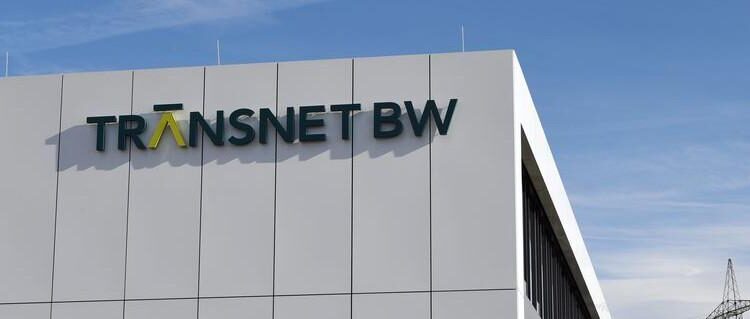Transnet and Labor Unions Forge New Wage Agreement to Safeguard South Africa’s Transport Network
In a pivotal move for South Africa’s transportation infrastructure, Transnet—the state-owned freight rail and logistics enterprise—has successfully negotiated a wage settlement with its labor unions, thereby preventing a potentially disruptive nationwide strike. This accord emerges after rigorous discussions aimed at addressing employee grievances while ensuring uninterrupted delivery of critical services that support the nation’s economy.
Key Elements of the Transnet Wage Settlement
The agreement encompasses several important provisions designed to improve worker welfare and stabilize labor relations within the company. Highlights include:
- Salary Adjustment: A uniform base pay increase averaging 6%, reflecting efforts to offset inflationary pressures impacting employees’ cost of living.
- Performance Incentives: One-off bonuses tied to company profitability metrics, rewarding staff contributions during challenging economic times.
- Enhanced Employee Benefits: Upgraded healthcare coverage and retirement fund enhancements aimed at long-term financial security for workers.
- Workforce Stability Guarantees: Assurance from management to maintain current employment levels throughout the next fiscal year, mitigating fears of layoffs amid economic uncertainty.
| Aspect | Details |
|---|---|
| Implementation Date | Effective immediately upon signing |
| Contract Duration | Two-year term (2024–2026) |
| Union Parties Involved | NUMSA (National Union of Metalworkers) & SATAWU (South African Transport and Allied Workers Union) |
This settlement represents a crucial step toward fostering industrial harmony in one of South Africa’s most vital sectors. By prioritizing dialogue over confrontation, Transnet demonstrates its commitment to sustaining essential freight operations that underpin national commerce.
The Broader Impact on South Africa’s Logistics Ecosystem
Avoiding an extensive strike has significant positive ramifications beyond just Transnet itself. The logistics sector—already contending with global supply chain disruptions exacerbated by geopolitical tensions and pandemic aftershocks—stands to benefit from this newfound stability. Industry analysts highlight several anticipated outcomes stemming from this agreement:
- Sustained Operational Continuity: With labor unrest off the table, supply chains reliant on rail freight and port services can expect fewer interruptions, reducing costly delays in goods movement across Southern Africa.
- An Uptick in Investor Confidence: Stability within such a strategic parastatal signals reliability to both domestic investors and international partners eyeing opportunities in African trade corridors.
- Tightened Collaboration Between Public-Private Stakeholders: Strengthened trust between unions, management, and private sector players may pave the way for joint initiatives focused on infrastructure upgrades or technological innovation within transport networks.
| Expected Outcome | Benefits Anticipated |
|---|---|
| Operational Reliability < td >Consistent service delivery with minimized downtime < tr >< td >Employee Engagement & Retention < td >Improved morale leading to reduced turnover rates among skilled workers < tr >< td >Market Perception & Growth Potential < td >Boosted confidence attracting new investments into logistics infrastructure development projects |
This agreement also arrives as global supply chains continue facing volatility — illustrated recently by incidents such as port congestion at Durban affecting container throughput by nearly 15% last year according to official data. By investing in workforce satisfaction now, Transnet positions itself better against future shocks while supporting broader economic resilience efforts underway nationally.
Navigating Future Labor Negotiations Within Transportation Sectors
The success achieved through this latest negotiation offers valuable lessons for upcoming collective bargaining processes across transport industries nationwide. To build upon this momentum effectively, stakeholders should consider adopting these strategic approaches moving forward:
- < strong >Transparent Communication Channels : Regularly sharing operational updates—including financial health indicators—with union representatives fosters mutual understanding before disputes escalate into strikes or work stoppages.
- < strong > & nbsp;< strong >& nbsp;< / strong >& nbsp;< / li >
- </ ul>
-
< li >
Establishment of joint labor-management committees tasked with proactively identifying workplace issues early.
< / li >< li >
Emphasis on interest-based bargaining techniques focusing on shared goals rather than entrenched positions.
< / li >< li >
Development of comprehensive wage benchmarking systems aligned with regional industry standards ensures fairness.
< / li >< p></ ul>
< h2 id = "conclusion"> Looking Ahead:&amp;amp;amp;amp;amp;amp;amp;a Stronger Transport Sector Through Cooperation </ h2> < p> The recent wage pact between Transnet and its workforce marks more than just an end to immediate conflict—it symbolizes progress towards sustainable industrial relations within South Africa's critical transport framework. As potential strikes are sidestepped through constructive engagement rather than confrontation,&amp;amp;amp;a stronger foundation is laid for ongoing operational excellence.<br/> With continued emphasis on collaboration alongside fair compensation practices,&amp;amp;mldr; Transnet is poised not only to safeguard but also enhance its role as an indispensable pillar supporting national economic recovery efforts amid evolving challenges.<br/> Stakeholders—from government entities through private sector partners—will be closely monitoring how these developments influence broader logistics dynamics throughout Southern Africa over coming years.</ p>














